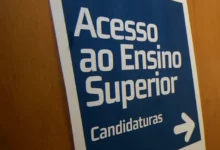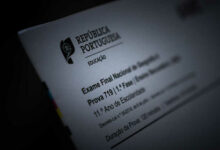Cash for Education… “Papa has Dough”
Growing up in a downtown neighbourhood that was very lean and competitive, whether it was in sports, or school, trying to get ahead was very difficult. Many kids in my neighbourhood achieved success in sports, others who were very intelligent got into all the good schools. Eventually, most people got decent jobs, and many evolved into interesting careers.

There were some kids that seemed to always have the best clothes, the newest bike and they seemed to always be ahead of everybody. We had an expression for that group of kids and we would call them “PHD’s”, meaning “Papa Has Dough”.
The wealthy have always had an edge, but the revelation that dozens actually paid to grease their kids’ way underscores what many parents feel. The university and college process have become an escalating contest where money often wins. In the latest scandal, parents paid bribes of $100,000 to $6.5 million to guarantee their children got into top schools, including Yale, Stanford, and many other well-known schools.
How money can influence the process is a sore subject aggravated by increasing competitiveness in admissions and made even worse as the country grapples with systemic inequality. For rich and poor alike, attending a highly selective college can be the ticket to desirable jobs, mates and social circles. Most top colleges say they’re trying to improve economic diversity, but in many cases, progress has been slow.
In many situations, the affluent parents take extreme measures to get their children into good schools because they fear that other parents are doing the same. This underlying race ramps up the competitive hysteria. It’s still relatively easy for the wealthy and celebrities to give their children an advantage in admissions. If you’ve got an awful lot of money, your offspring have to be pretty dumb not to get into some of these institutions. You have a big pool of people who are academically qualified, therefore, schools give extra points to qualified applicants who come from philanthropic families.
The education scandal in the United States exposed the basic principal that has been around for centuries, which is the old secret that money buys a lot.
Similar principles apply to the universities and colleges here in Canada, where the wealthy and privileged have access that many of us will never have. Many Canadian news outlets showed some Canadian universities saying they have tighter rules and regulations during the application process. They also have said that ‘pay for admission’ very rarely happens in the great white north. This is not true. If you have money and influence, the access is open everywhere. The scandal calls into question everything from admissions preferences for children of alumni and athletes, to the weight admissions officials give on how well students do on tests such as the Law School Admissions Test (LSAT) and SAT, which have long been shown to favour wealthy students.
This is an unfortunate example of the lengths to which people will go to circumvent and manipulate the admission process, particularly to gain admission to highly selective universities and colleges. Higher education policies have always favored the elite, and more importantly, higher education has become less of a place that encourages students to pursue an education with real-world skills.
Has corruption infiltrated our universities and colleges?
Like any bureaucracy or institution, the education system is a business. Whether you want to believe that or not, it’s a reality. Institutions linked with establishment values desire money and possess self-subsisting interest in supporting its favourites. Where education is not universally free, favours will be done, or least be seen to be done.
Parents going to extreme lengths to boost their children’s academic success is not uniquely a US phenomenon. In most parts of the world, parents have gone to extremes. In China, parents have protested against the measures imposed to stop their children from cheating on notorious difficult university entrance exams.
The culture of parents making hefty donations to a university to boost their child’s prospects is well-known. The connection between large donations and admissions is murky, but it’s a reality.
In the university and college admission race, the poor and middle class are often at a disadvantage, however, the PHD syndrome of “Papa Has Dough” has always been there and will continue to flourish once the dust settles.
Vincent Black








Redes Sociais - Comentários